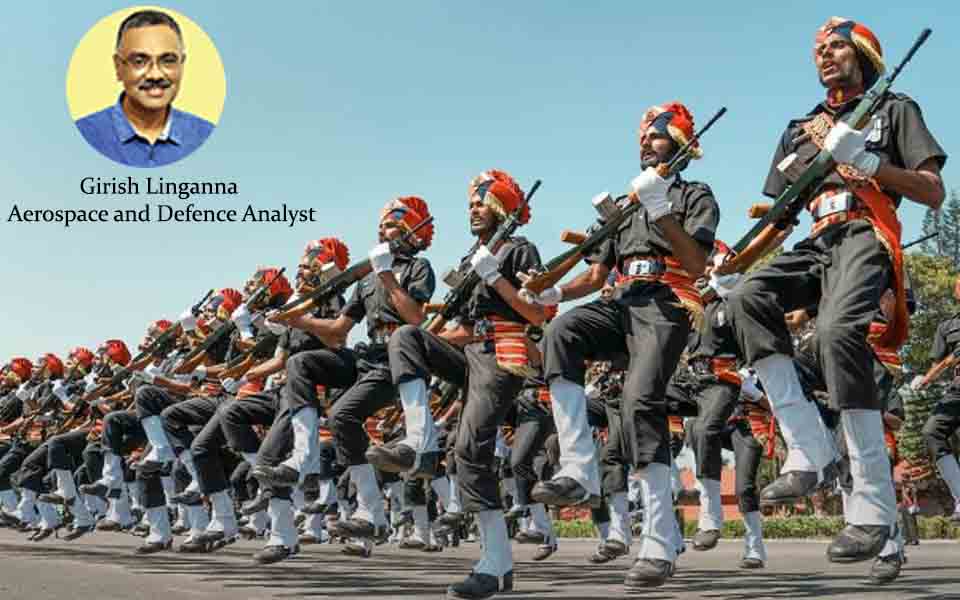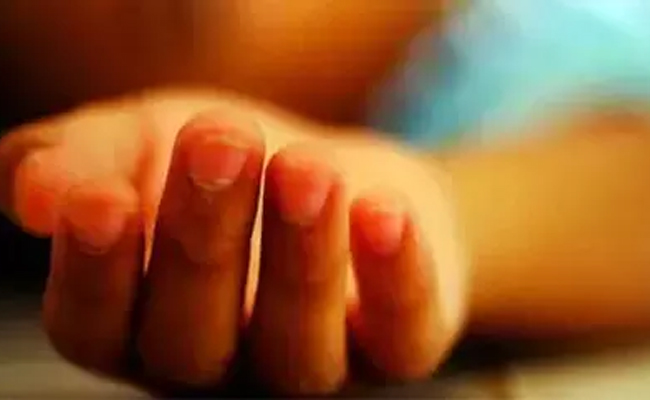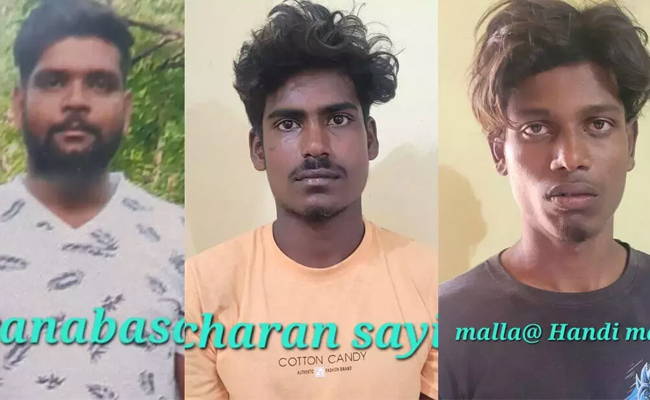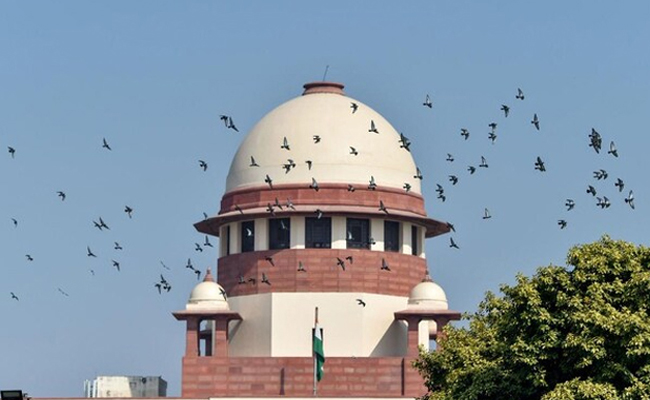The Army Day celebration, which takes place on January 15 each year, will be hosted in Bengaluru for the first time this calendar year. Additionally, this year marks the first time that Army Day, which is currently in its 75th year, will be celebrated in a location other than the nation's capital.
Major General Ravi Murugan, who serves as the General Officer Commanding (GOC) for the Karnataka and Kerala sub region, revealed to the media at the Madras Engineering Group (MEG) & Centre in Bengaluru that the Union Defense Minister Rajnath Singh will be the primary guest at the event. He mentioned that the MEG & Centre will be the location of the Army Day parade and will function in that capacity.
There will be eight marching contingents, one of which will be an Army Service Corps horse-mounted contingent. Additionally, there will be a military band that will be comprised of five regimental brass bands. Each of these contingents symbolises a different regiment, each of which has an illustrious history and unique traditions. As part of its support for the Army Day Parade, Army Aviation's Dhruv and Rudra helicopters will execute a fly-by.
Army Day celebrations
On January 15, 1949, Field Marshal Kodandera M. Cariappa succeeded General Francis Butcher as the final Commander-in-Chief of the British Army. As a result of this promotion, Field Marshal Cariappa became the first Commander-in-Chief of the Indian Army. In his honour, the celebration of Indian Army Day takes place every year on this day.
Parades, the awarding of medals, and military and cultural performances are all part of the celebrations in New Delhi and at other Army Command headquarters on this day.
In 1945, India attained its status as a sovereign nation, more than two centuries after achieving independence from British dominance. Because of the large number of Pakistani refugees and migrants entering the country at the time, there was tremendous instability and unrest across the nation.
An intervention by the military was required due to the administrative instability to handle the situation and establish peace during the country's partition. At this juncture, Field Marshal Kodandera M. Cariappa was made in charge of the country's military.
In 1899, Field Marshall Cariappa was born in the Indian state of Karnataka. His father, Madappa, worked in the revenue department at one point in time. Along with Sam Manekshaw, Cariappa was one of the army officers who was promoted to the rank of Five-Star Field Marshal after achieving that rank. In addition to being the first Indian commander-in-chief and one of the army's five-star generals, Cariappa's history also includes the fact that he was one of the first members to join the Indian Air Force when it was originally established.
Army Career
Field Marshal Cariappa graduated on December 1, 1919, and was granted a temporary commission. A permanent commission was issued on September 9, 1922, with an effective date of July 17, 1920. This was done to lower the status of Field Marshal Cariappa relative to British officers who graduated from Sandhurst on July 16 1920. In May of 1920, he was transferred to the 2/125 Napier Rifles, which relocated to Mesopotamia (present-day Iraq). In June 1922, Field Marshal Cariappa was assigned to the 7th Prince of Wales Own Dogra Regiment upon his return to India. Field Marshal Cariappa was assigned to the 1/7 Rajputs regiment in June 1923, which became his permanent home regiment.
In 1925, Field Marshal Cariappa toured Europe, the United States, Japan, and China, among other places. The visit proved instructive for him as he encountered a large number of military and civilians from many countries. While stationed in Fatehgarh, a British officer's wife gave him the moniker " *Kipper* ," which Field Marshal Cariappa found difficult to pronounce. Field Marshal Cariappa was promoted to captain in 1927, but the promotion was not publicly announced until 1931.
In 1947, Field Marshal Cariappa was the first Indian to enrol in a training programme at the Imperial Defence College in Camberly, United Kingdom. Field Marshal Cariappa was appointed as the Deputy Chief of General Staff with the rank of Major General upon India's independence. Upon the commencement of the war in Pakistan, he was promoted to Eastern Army Commander and General Officer Commanding-in-Chief, Western Command.
During the 1947 Indo-Pakistan War, he commanded the country's western forces before being promoted to Army Chief. He played a vital part in retaking numerous Kargil territories, which was a great accomplishment.
Field Marshal Cariappa stepped down from his position as commander-in-chief on January 14, 1953, having served in that capacity for four years. Before his retirement, he paid a farewell visit to the Rajput Regimental Centre, the home of his parent regiment, the Rajput Regiment. After he retired, he took up the role of Indian high commissioner to Australia and New Zealand and remained in that position until 1956.
Personal life
In March of 1937, he wed Muthu Machia, whose father was a forest official in Secunderabad. Muthu Machia's father was a forest officer. Together, they have a son and a daughter. His son, Air Marshal K. C. 'Nanda' Cariappa , is a former officer in the Indian Air Force.
The " Order of the Commander-in-Chief of the Legion of Merit " was bestowed on him as a symbol of recognition. In 1993, he reached 94 when he passed away in Bangalore. The efforts of this Man of Principals are being recognised via the celebration of Indian Army Day. He was revered for the compassion and self-control for which he was known. Through his selfless acts of patriotism, he served as a model for many generations.
Let the Truth be known. If you read VB and like VB, please be a VB Supporter and Help us deliver the Truth to one and all.
New Delhi (PTI): Prime Minister Narendra Modi on Monday inaugurated the India AI Impact Expo here featuring over 600 high-potential startups and 13 country pavilions showcasing international collaboration in the AI ecosystem.
He also interacted with startups participating in the expo.
The prime minister visited various stalls and spoke with the companies participating in the expo. He was seen asking questions from company representatives to better understand what they are showcasing.
ALSO READ: SC rejects plea over hoardings 'prohibiting' entry of pastors in Chhattisgarh villages
The prime minister spent several minutes at various stalls while interacting with the representatives.
The Expo brings together global technology firms, startups, academia and research institutions, central and state governments and international partners.
Spread across 10 arenas covering more than 70,000 square metres, the Expo brings together global technology firms, startups, academia and research institutions, Union ministries, state governments and international partners.
The Expo also features 13 country pavilions, showcasing international collaboration in the Artificial Intelligence (AI) ecosystem. These include pavilions from Australia, Japan, Russia, the United Kingdom, France, Germany, Italy, the Netherlands, Switzerland, Serbia, Estonia, Tajikistan and Africa.
The Expo will host over 300 curated exhibition pavilions and live demonstrations, structured across three thematic chakras -- people, planet and progress.
In addition, the Expo will feature over 600 high-potential startups, many of them building globally relevant and population-scale solutions. These startups will demonstrate working solutions that are already deployed in real-world settings.





